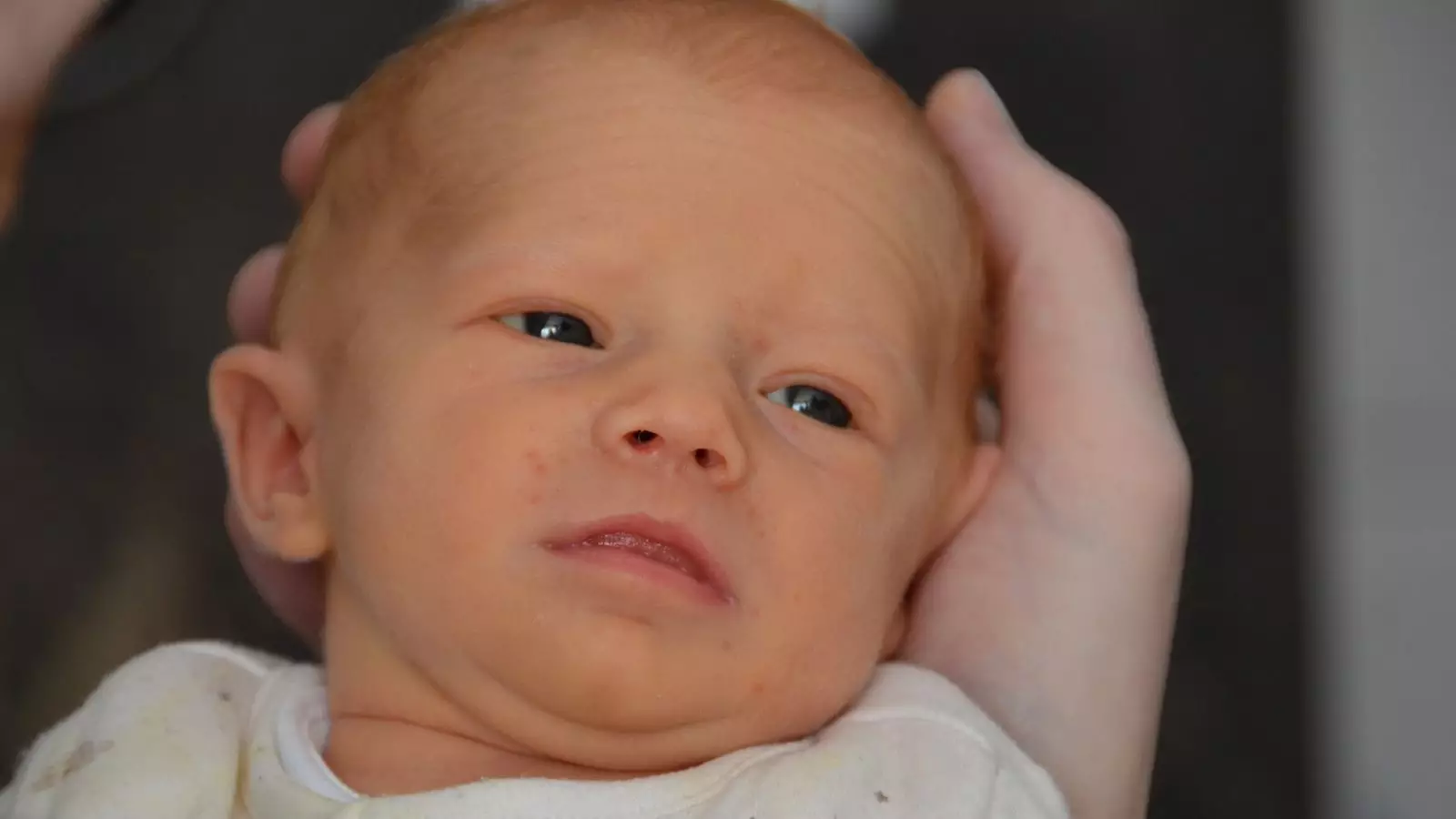In what can only be described as a miraculous leap forward in reproductive medicine, a baby girl named Amy Isabel has become the first child in the UK born from a womb transplant. This groundbreaking event underscores a significant moment in the quest for reproductive autonomy, encapsulating both medical innovation and profound emotional resonance for families like that of Grace Davidson, the mother. Davidson’s journey, marked by struggle and resilience, serves as an emblem of hope for women facing similar challenges, particularly those diagnosed with Mayer-Rokitansky-Kuster-Hauser (MRKH) syndrome—a condition that has historically robbed many of the chance to conceive and bear children.
The successful birth of Amy Isabel not only signifies a mother’s triumphant journey from despair to joy, but it also brings to light the monumental advances that have been achieved in medical science. It raises vital questions about the ethical implications of womb transplants and the right to bear children, positioning Grace Davidson’s experience as a focal point in an ongoing dialogue about reproductive health rights.
Personal Stories of Sacrifice and Love
The intimate details surrounding the transplant reveal the immense sacrifices made out of love. Grace received the life-enabling womb from her older sister, Amy Purdie, an act so selfless and profound that it speaks to the very core of familial bonds. Purdie’s willingness to gift her sister the womb signifies not just a physical donation, but an emotional testament to hope, solidarity, and the lengths we are willing to go for the ones we love.
This personal saga highlights the necessity for conversations surrounding organ donation, emphasizing the narratives that often go unheard in the world of clinical trials and medical advancements. For women like Davidson, who are born without a womb, or have experienced failures in their reproductive systems, the pioneer work of healthcare professionals represents more than just a medical procedure. It symbolizes the dawning of a new age in reproductive rights—a major step toward inclusivity and understanding of women’s health issues that have been largely ignored for too long.
A Cautious Celebration of Medical Wonders
Nevertheless, as we celebrate and marvel at this medical achievement, it also calls for a critical evaluation of where we stand in the realm of reproductive technologies. The finesse involved in this complex procedure, as articulated by lead surgeons Professor Richard Smith and Isabel Quiroga, shines a light on the medical expertise underpinning this miraculous event. However, it is imperative to consider whether we are adequately prepared for the ethical implications that arise as reproductive technologies continue to develop at an unprecedented pace.
Issues of access become paramount—will womb transplants remain a privilege primarily afforded to the few who can navigate the rigorous healthcare system? And what about the countless women who would benefit but lack the resources or support? This event, while momentous, also reveals the double-edged sword of scientific progress; the potential for creating greater disparities in reproductive health access raises legitimate concerns.
Hope for the Future of Reproductive Health
Simultaneously, Grace Davidson’s reflection on her experience reverberates with a sense of completeness—a feeling echoed by her husband, Angus: “The moment we saw her was incredible,” he described, characterizing their long journey towards parenthood. This narrative resonates deeply in an age where many strive for family formation against the odds. Their joy serves as a powerful reminder that while science evolves, the human heart remains steadfast in its desire for connection and love—a connection that transcends typical reproductive scenarios.
Indeed, while this pioneering procedure opens the door for many aspiring parents who face reproductive challenges, it also insists upon the acknowledgment that challenges exist beyond the hospital walls. It evokes sentiment and triumph, weaving personal narrative into the larger fabric of medical breakthroughs.
As we stand at this crossroads of hope and innovation in reproductive healthcare, it is crucial that we engage with the ethical dimensions that accompany such transformative advancements. The birth of Amy Isabel might just be a catalyst for a renewed discussion on the rights and options for women navigating their reproductive journey—a call for inclusivity, accessibility, and support, championing a future where every woman can aspire to motherhood, irrespective of her starting point.

Leave a Reply